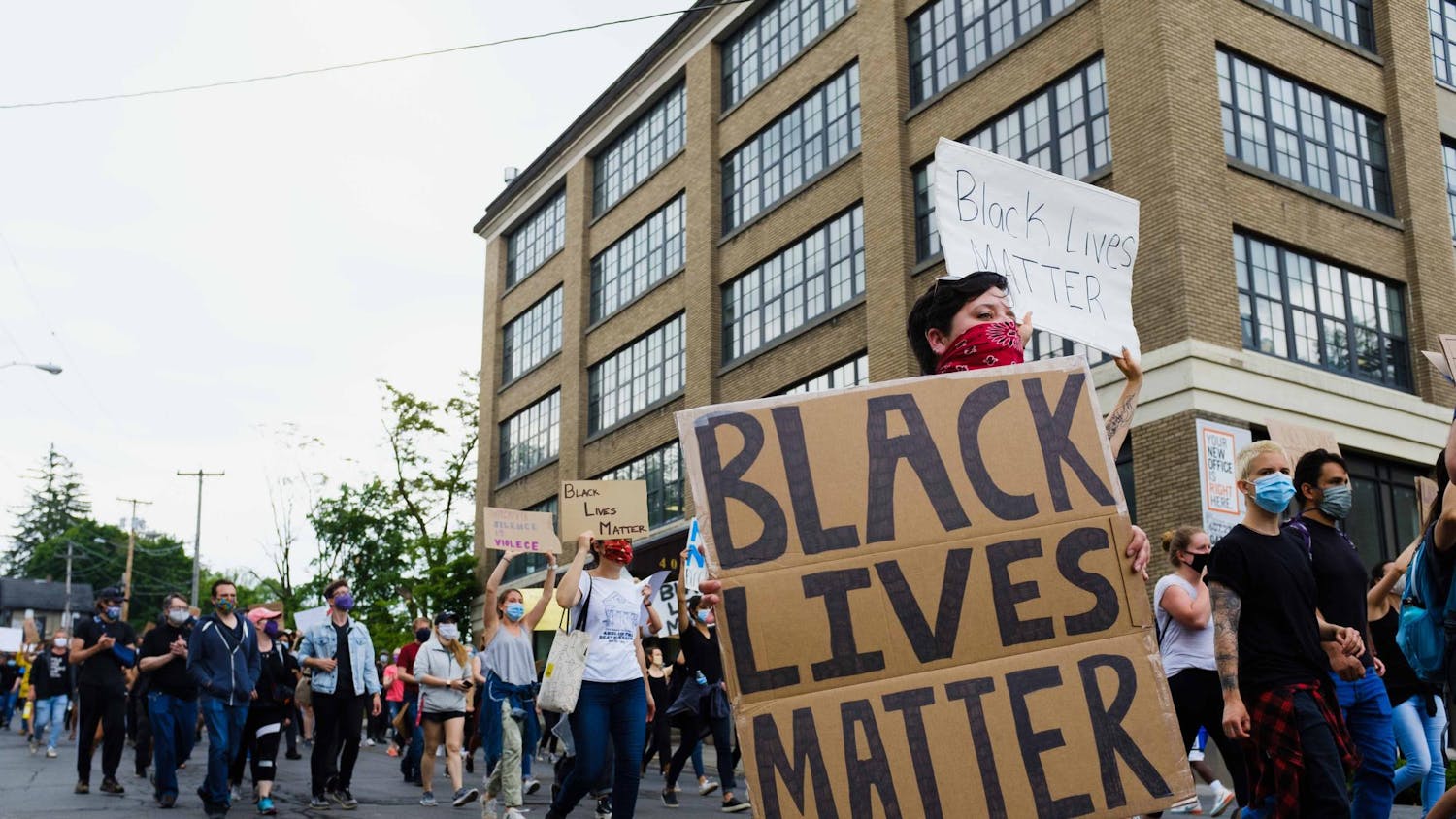Last month, Rep. Ritchie Torres (D-N.Y.) condemned Prof. Eric Cheyfitz, American studies, on X, claiming that he “demonizes Israel and lionizes Hamas.”
The criticism came amid escalating tensions surrounding Cheyfitz’s Spring 2025 course, “Gaza, Indigeneity, Resistance,” which, according to Cheyfitz, was approved by the curriculum committee. The course has drawn scrutiny for its alleged antisemitic bias.
In an email quoted by the Jewish Telegraphic Agency, Interim President Michael Kotlikoff described it as presenting “a radical, factually inaccurate, and biased view of the formation of the State of Israel and the ongoing conflict.”
In a separate statement to The Sun, Kotlikoff clarified that his comments were intended to remain private.
“I do not comment publicly about faculty courses or faculty curricular decisions. Recently my private comments to a colleague were obtained by the press. Those comments reflected my personal view that courses should challenge and provoke independent thought, rather than seek to convince students of a particular point of view,” Kotlikoff said.
Prof. Menachem Rosensaft, law, has been openly critical of Cheyfitz and other professors, accusing them of “using the curriculum in their courses for political purposes” in an interview with the Jewish Telegraphic Agency. In an email to The Sun, Rosensaft described the course description as “inflammatory, constituting antisemitism on steroids.”
Rosensaft confirmed with The Sun that he was the one who shared his correspondence with Kotlikoff to the Jewish Telegraphic Agency upon their request.
Rosensaft took issue with the omission of the Hamas-led Oct. 7, 2023, attack on Israel in the course description.
“Ignoring this event casts doubt on the course’s legitimacy,” Rosensaft wrote.
In an interview with the Sun, Cheyfitz countered, “I teach facts — not alternative narratives. The curriculum committee reviewed and approved this course based on its academic merits.”
Cheyfitz argued that his course seeks to explore the complexities of Gaza’s humanitarian crisis, not to justify violence. “This is about a deeper understanding of history and human rights,” he said.
Last semester, Cheyfitz hosted a teach-in on Gaza, an educational forum designed to foster discussion and raise awareness about pressing issues. Teach-ins, unlike traditional lectures, often include interactive elements and encourage open dialogue among participants. This particular event explored themes closely tied to his controversial course.
“[Kotlikoff] called me before the teach-in, not to ask about the content or raise concerns, but to ask if I needed security,” Cheyfitz said.
Cheyfitz contrasted Kotlikoff’s earlier support of his teach-in with his subsequent remarks on the course.
“The content hasn’t changed — only the pressure he’s receiving from external forces,” Cheyfitz said, suggesting that trustee and donor influence played a role in the backlash.
In a Sept. 30 private Cornell Hillel parents meeting with Vice President for University Relations Joel Malina and Vice President for Student and Campus Life Ryan Lombardi, parents expressed concern over anti-Israel sentiment among faculty, and the administrators discussed monitoring courses and protests more closely.
"I think that this newly open criticism of my course is provoked by pro-Israeli donors and trustees and parents,” Cheyfitz said. “This backlash is less about academic integrity and more about appeasing donors and trustees who are uncomfortable with critical discussions of Israel.”
The controversy has not been without personal consequences for Cheyfitz. He described receiving hate mail, including threats of violence against his family, which he attributed to Kotlikoff’s comments.
Cheyfitz described the personal toll of the controversy, linking it directly to Kotlikoff’s remarks.
“This time [Kotlikoff] has provoked more hate mail,” Cheyfitz said. “He violated academic freedom, and he then stimulated these hate emails. This behavior intimidates faculty and discourages critical perspectives.”
Faculty members have rallied in support of Cheyfitz. In an email sent to professors in comparative literature and romance studies obtained by The Sun, Prof. Tracy McNulty, romance studies, who also leads as the interim department chair, criticized Kotlikoff’s interference as undermining faculty governance. McNulty described Kotlikoff’s public criticism as "an attempt to circumvent governance procedures at Cornell and the longstanding recognition that the faculty alone, as represented here collectively by the Curriculum Committee, are responsible for curricular matters."
The Middle East Studies Association’s Committee on Academic Freedom has also voiced support for Cheyfitz. In a public letter to Kotlikoff, the committee urged him to retract his criticism, emphasizing the importance of protecting academic integrity and faculty autonomy. “Kotlikoff’s actions undermine Cornell’s commitment to free expression,” the letter stated.
Cornell’s administration has faced mounting pressure from donors and trustees critical of faculty perceived as anti-Israel. Cheyfitz’s course remains fully enrolled, despite the controversy.
“My students have a right to engage critically with these issues,” Cheyfitz said. “That’s the essence of a liberal education.”
Maryam Ismail '27 is a Sun contributor and can be reached at mmi26@cornell.edu.
Clarification, Dec. 3, 6:23 p.m.: The article was updated to include the departments Prof. Tracy McNulty, romance studies, emailed.











